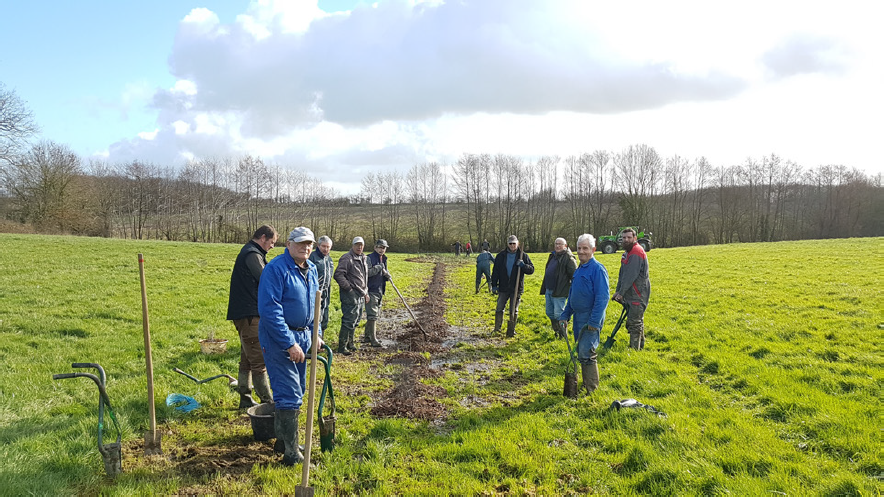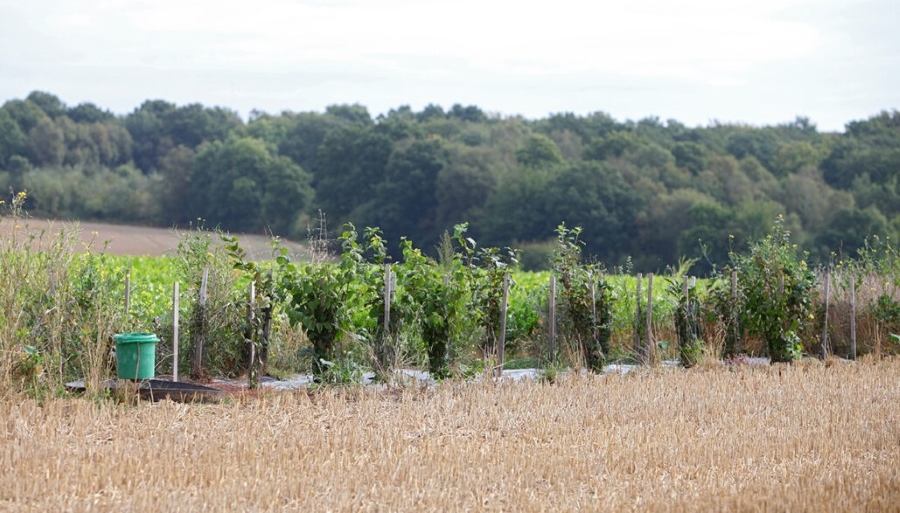
11 Mar 2024 Celebrating the Vital Role of European Hunters in Green Infrastructure and Nature-Based Solutions
On 7 March, FACE attended the EUBP Sub-group on Green Infrastructure meeting, the first such meeting in recent years. FACE has been involved in this sub-group since its inception.
European hunters are highly relevant in this sub-group as they constitute a stakeholder group that makes significant contributions to the development and promotion of green infrastructures and nature-based solutions. These efforts align with several EU policies such as the EU Climate Adaptation Strategy, the EU Biodiversity Strategy, the Farm to Fork Strategy, and the Nature Restoration Law.
Numerous other EU policies also support nature-based solutions and green infrastructure across various sectors including agriculture, forestry, climate change mitigation and adaptation, disaster prevention and risk reduction (e.g., natural flood management and water retention measures), energy, transport, health, and research.
In the broader international context, the role of nature-based solutions in addressing biodiversity and climate crises is recognized by organizations such as IPBES, IPCC, and IUCN. They are also integrated into the framework of the three Rio Conventions and the Kunming-Montreal Global Biodiversity Framework (specifically targets 8, 11, and 12).

What is green infrastructure?
Green infrastructure refers to a strategically planned network of natural and semi-natural areas with other environmental features designed and managed to deliver a wide range of ecosystem services across terrestrial, aquatic, coastal, and marine environments. Examples include protected areas (e.g., Natura 2000), restored habitats, wildlife corridors (e.g., ponds, hedgerows, woodland strips), artificial features that enhance ecosystem services or assist wildlife movements (e.g., eco-ducts or fish ladders), and buffer zones (e.g., green belts). In short, it serves as a tool for providing ecological, economic, and social benefits through nature-based solutions.
What are nature-based solutions?
Nature-based solutions encompass actions aimed at protecting, conserving, restoring, sustainably using, and managing natural or modified terrestrial, freshwater, coastal, and marine ecosystems. These actions effectively address social, economic, and environmental challenges while simultaneously providing human well-being, ecosystem services, resilience, and biodiversity.
These definitions aptly describe many actions led and carried out in the field by European hunters. As demonstrated by FACE’s Biodiversity Manifesto, nearly half (43%) of all projects undertaken by hunters are dedicated to habitat restoration, with 13% focused on protected areas. Regarding habitat restoration, 37% of projects target wetlands, and 40% focus on farmlands, highlighting the significant value hunters place on biodiverse wetlands and farmlands and their enduring commitment to conserving them.
For example, French hunters have been involved in restoration projects for decades. Over 20 years, 512,000 trees and shrubs, funded by the Hunting Federation in the department of Vendée, have been planted across 679 sites, covering 374 hectares of woodland and 96 kilometers of hedges, thereby enhancing biodiversity in their environments and benefiting a wide variety of wildlife. Similarly, hunters in Haute-Garonne restored 124 ponds between 2017 and 2022.
Another exemplary initiative is the work of South Tyrolean hunters in preserving and improving natural habitats in Alpine regions, where sensitive species such as Galliformes are affected by habitat loss, primarily due to the neglect of pastures and open areas leading to afforestation. Since 2016, the hunting community has contributed around 10,625 hours of voluntary work, with 2,500 hours contributed in 2019 alone.
Numerous other examples can be found in FACE’s Biodiversity Manifesto and detailed information in its yearly reports.
In conclusion, European hunters are making significant contributions to addressing today’s overarching objectives of tackling biodiversity and climate crises, thereby providing valuable services to society, often free of charge.

